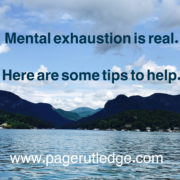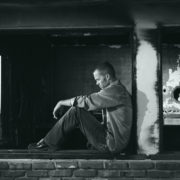This isn’t the typical advice column, so you are duly warned. It’s a two minute read, so no excuses, to learn five ways to boost your relationship happiness. Read more
Posts
If you are hug starved, I want you to know you are not alone. Touch starvation is real. Dopamine, oxytocin (the cuddle hormone), serotonin, and endorphins—all of these necessary hormones are greatly reduced with loss of touch. I can guarantee you miss touch if you live alone, are neuro-typical, and have been much more isolated since the start of COVID19. Touch starvation is a real thing. And among much lower doses of the aforementioned neurochemicals your brain releases when touched (in a positive manner), it also lowers your immune response. Bad news indeed. But there are ways to counteract the absence of touch.

Are You Hug Starved?
What Touch Does For Us
We are accustomed to physical touch, casually and intimately. Evolution dictates that we are born with a need for it. Many hospitals have volunteer cuddling programs for babies in NICU. Failure to thrive due to lack of human connection has killed many babies and children. Our skin is the largest organ in our body. It has billions of sensors that are activated when we are touched. Pleasing touch aids in food digestion, improves your immune system response, and helps you sleep well. Physical touch is one of Gary Chapman’s Five Love Languages. I know how incredibly important it is to me.
Every single medical disease including heart attack, diabetes, hypertension, asthma — every single physical disease — is altered if you are more anxious, more depressed or if you have more mental health issues.— Asim Shah, M.D., professor and executive vice chair of the Menninger Department of Psychiatry at Baylor College of Medicine.
When we are missing touch, it contributes to feeling isolated and uncared for in a way that leads to depression and an amplification of other challenging issues in our lives, both medical and psychological, that are already present. Touch calms the limbic system, and when lost, it leaves your stress response at a level that makes it much more readily activated. It leads to higher levels of cortisol, the stress response hormone. Yes, loss of touch is one more result of COVID19, the gift that just keeps on giving.
Counteracting Touch Starvation
Here are ten ways to counteract touch starvation during COVID19. You will be be familiar with many of these, but it is still important to try them if you are feeling this loss.
- Video-chat connection, whether it’s FaceTime or Zoom or WebEx, has been shown to be about 80% effective at replacing in-person connection. But you have to have the visual connection.
- Interaction with animals, namely pets, can be crucial.
- Online yoga, workout, and dance instruction are helpful in the release of oxytocin.
- Actually dancing online, moving in tandem with others, in either dance parties or with one other person activate mirror neurons, which in turn make us feel a part of something other than ourselves.
- Singing can also aid in the release of helpful neurochemicals, especially with others.
- Manicures, pedicures and getting your hair done are terrific for touch stimulation, and feeling renewed as well.
- Applying gentle pressure with wighted blankets, or simply one with a texture that is pleasing to you, along with the various compresses /eye-pads that can be heated or chilled.
- Simply wetting a washcloth with very hot water, wringing it out and placing it gently over your face, inhaling the steam and enjoying the warmth is quite pleasing.
- Massage (with a trusted professional who is abiding by heightened cleaning standards) is a proven way to relax.
- Playing games online while also maintaining a live video chat connection is fun. Make sure you take time to chat and catch up with people’s personal lives before you leap to playing.
One Other Factor Contributes To Touch Starvation
Even before COVID19, touch in our lives has become greatly, sneakily, reduced. I attribute this directly to our screens and mobile devices. We hide behind them. And the incredible power behind the algorithms that run the various social platforms we hook into keep us scrolling. We may spend less and less time engaged with the here and now, and what is going on right in front of us.If you don’t believe me, I highly recommend you watch the documentary The Social Dilemma on Netflix.
Conclusion
Many of us are touch starved. Safety and the pandemic has dictated this. But we are resilient and adaptable, and this pandemic will pass. Meanwhile, those most deeply affected by touch starvation must increase our awareness and practice ways we can successfully counteract this deprivation in order to live healthier lives.
If you are isolated and lonely, engaging in therapy online can help. Contact me here if you think it would help.
I am a member of the Anxiety and Depression Association of America (ADAA), and they often publish articles of value that I like to share with you. The following “Ten Tips For Dealing With Mental Exhaustion” is one such article.
My mother died last June, and her name was June. This is my first Mother’s Day Grief without her in the world. The picture you see (scroll down if her head is chopped off; my lack of technical prowess is showing) shows her in her prime doing what she did best: organizing several hundred Pixy Pin-Up children’s photographers and their schedules all over the United States, BEFORE there was such a thing as spread sheets, google, or online flight reservations. She had this great big board in her office with constantly changing slips of paper and schedules representing each photographer. The schedules all changed weekly, too. I always thought my mom was born in the wrong era. She would have made an incredible chief of operations and logistics. She majored in home economics, because that was really about the only option there was when she attended college. On this Mother’s Day, consider what your relationship is or was with your mother, and plan your day accordingly.
Consider this quote from Men’s Health magazine about male depression:
The bro culture that dictates limited ways of interacting: fist bumping, shoulder punching, sports banter, and shrinking from talk that gets too real is hurting men. Being too sensitive with other males invites talk of “manning up”, or worse, causes others to shrink away from you as if you have a raging contagious case of the flu.
Would you agree that your mental health is inseparable from your physical health? That your mind and body cannot be divided? If so, why are there so many men stigmatized if they even breathe a hint of trouble on the mental health front?
I’m so sorry you’re in the midst of a bad depression episode, but here are some possibilities for you. I want you to know there is a future.
Word. This is the number one anxiety related sleep issue I hear about: “I wake up and can’t get back to sleep.” That is closely followed by: “I can’t get my monkey mind to stop at night when I am trying to get to sleep.” I am going to help you with both issues. It’s up to you to actually implement the help. Horses, water, drink…well you know the drill.
First we are going to get the blah, blah, blah, sleep hygiene talk out of the way. You have heard it all before, BECAUSE IT’S IMPORTANT, duh. If you can’t get these principles under wraps, you may as well stop here, even if I am going to give you some mostly secret knowledge later on.
A concerned mother wrote and asked me for suggestions for her son who was in his first semester at college in a different state. She was feeling helpless from afar, and wanted to know how to advise him about his long-standing social anxiety and depression, which had flared in his new environment. This is what I told her.
Dear Worried Mom,
What better time than the start of a new year to make change that can positively affect the rest of your life? Let’s assume you have made that brave decision, and talk therapy is part of your plan. What do you expect when you are expecting talk therapy? If you want to know how I do it, read on.
People that have never experienced talk therapy often feel a tad apprehensive about getting started. There are lots of reasons. Some wonder if it will do any good at all, and others have the odd fear they won’t be able to ‘do it right.’ Some people simply don’t know how it proceeds or what is expected of them, and they are anxious about that. Still others believe they will receive all the instructions from the therapist about how to change and be on their way—with no real understanding of the courage, persistence, and work that real change takes. And some believe a pill is the answer.
It’s pretty standard knowledge that you go to therapy to change something. But changing a way of thinking or a behavior we don’t like is just not that easy, is it? And it is especially difficult to change our reactions to other’s mayhem. If it was we’d all do it and be on our merry way. Let me share three signs you need therapy.
PAGE RUTLEDGE, LCSW, CHt | Couples Counseling
Tel: 910-777-7243
Offices at:
5006 Randall Parkway (close to UNCW)
Wilmington, NC 28403
Free parking at office






 Page Rutledge, LCSW
Page Rutledge, LCSW

